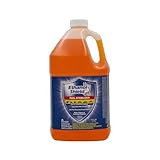Fuel System Problems And Solutions
Understanding your car’s fuel system is crucial for reliable performance and longevity. This guide explores common fuel system problems and solutions, equipping you with the knowledge to diagnose and address issues effectively, saving you time and money. We’ll cover everything from fuel pump failures to injector issues, helping you maintain your vehicle’s optimal running
condition.
Understanding Your Fuel System
A car’s fuel system is a complex network responsible for delivering fuel from the tank to the engine for combustion. It involves several key components working in harmony. Let’s delve into the specifics.
The Fuel Pump: The Heart of the System
The fuel pump is the heart of your fuel system, responsible for drawing fuel from the tank and delivering it under pressure to the engine. A failing fuel pump can manifest in various ways, from difficulty starting the engine to sputtering during acceleration. Symptoms can include a whining noise from the fuel tank, poor fuel economy, and even complete engine failure. If your fuel pump fails, you’ll need a replacement – a relatively common repair that most mechanics can handle. This involves accessing the fuel pump (often located within the fuel tank), carefully removing the old unit, and installing a new, compatible pump. For example, a faulty fuel pump in a Honda Civic might require specialized tools and knowledge to access the pump assembly within the gas tank. The cost of the replacement can vary from $300 to $800 plus labor depending on your vehicle’s make, model, and whether you need specialized tools or specialized access to the pump. Regular maintenance, such as keeping the fuel tank at least a quarter full to keep the pump immersed in fuel, can help extend its lifespan.
Fuel Injectors: Precise Fuel Delivery
Fuel injectors precisely meter fuel into the engine’s combustion chambers. Clogged or faulty injectors can lead to rough idling, poor acceleration, and decreased fuel efficiency. The solution could range from a simple cleaning to complete injector replacement, depending on the severity of the problem. A professional mechanic will often perform an injector cleaning, which involves removing the injectors, cleaning them with specialized solvents, and then testing the spray pattern to ensure they’re working correctly. In cases of severe damage or wear, replacing injectors is necessary. For example, replacing faulty fuel injectors on a Ford F-150 might involve more intricate procedures than those on a smaller vehicle and may involve higher labor costs. Often a fuel injector cleaning may be part of a regularly scheduled tune-up. The cost of replacing fuel injectors is usually in the range of $250-$700 per injector plus labor.
Fuel Filter: Maintaining Clean Fuel
The fuel filter removes contaminants from the fuel before it reaches the engine, protecting delicate components like the injectors and pump. A clogged fuel filter restricts fuel flow, leading to similar symptoms as a faulty fuel pump or injectors. Replacing the fuel filter is a relatively inexpensive and straightforward procedure that even novice DIY enthusiasts can tackle. Many vehicle maintenance schedules call for fuel filter replacement every 20,000 to 30,000 miles. A clogged filter can cost as little as $20 to replace; however, labor costs should be factored into the overall cost of repair. Replacing a fuel filter may seem simple, but it can present some challenges depending on your car’s make and model. For example, some vehicles might require the removal of other components to access the filter.
Common Fuel System Problems
Let’s examine some of the most prevalent fuel system issues car owners encounter. I’ve personally dealt with many of these during my years of working on vehicles.
Fuel Pressure Issues
Insufficient fuel pressure is a significant problem that can stem from a variety of sources – a failing fuel pump, a clogged fuel filter, or even a leak in the fuel lines. Diagnosing the root cause often involves using a fuel pressure gauge to measure the pressure at different points in the system. The repair itself might involve replacing the faulty fuel pump, changing the filter, or fixing the leak in the fuel lines. This is where having a good understanding of your specific vehicle’s fuel system is essential. Remember to follow safety precautions when handling fuel – it’s highly flammable.
Fuel Leaks
Fuel leaks pose a serious safety hazard. They can be caused by damaged fuel lines, loose connections, or faulty fuel tank components. The strong smell of gasoline is usually the first sign of a fuel leak. Addressing a fuel leak requires immediate attention. This could involve tightening loose connections, replacing damaged fuel lines, or in more serious cases, repairing or replacing the fuel tank. A leaking fuel tank would be a costly repair, as would damaged fuel lines running through the vehicle’s chassis. These repairs could easily amount to hundreds of dollars, depending on the car and the location of the leak. Safety is paramount, so don’t attempt fuel line repairs unless you have the appropriate experience and safety equipment.
Diagnosing Fuel System Problems
Correct diagnosis is crucial before attempting any repair. Skipping this step can lead to wasted time and money.
Check Engine Light
The check engine light is your first clue that something might be wrong with your fuel system. While it doesn’t pinpoint the exact problem, it indicates that the onboard diagnostics system has detected a malfunction that should be investigated immediately. A mechanic can use a scan tool to read the diagnostic trouble codes (DTCs) stored by the car’s computer, providing valuable insights into potential fuel system issues. Ignoring the check engine light can lead to more significant and costly problems down the road. I’ve seen many instances where ignoring a simple warning light resulted in much larger, and more expensive, repairs later.
Observing Symptoms
Beyond the check engine light, there are many symptoms that suggest fuel system issues. These include difficulty starting the engine, sputtering, hesitation during acceleration, reduced fuel efficiency, and a rough idle. The more observant you are, the easier it will be to identify which component is at fault. Keeping a record of when and how frequently these symptoms occur provides valuable information for the mechanic.
Fuel System Maintenance: Prevention is Key
Regular maintenance can significantly extend the life of your fuel system components and prevent costly repairs.
Regular Fuel Filter Replacement
Replacing your fuel filter as recommended in your vehicle’s owner’s manual is a simple yet effective preventative measure. It removes contaminants from the fuel, protecting the rest of the system from damage. I always recommend sticking to the manufacturer’s suggested intervals. This is an inexpensive maintenance item that can make a big difference in the long run. Often, doing this maintenance yourself can save money too.
Fuel Injector Cleaning
Periodic fuel injector cleaning can improve fuel efficiency and engine performance. While some vehicles benefit from this more than others, it’s generally recommended in certain situations, like hard starts or if the car is driven infrequently. A mechanic uses special cleaning fluids and equipment to achieve this.
Fuel Additives: Enhancing Fuel System Performance
Fuel additives are designed to clean injectors, lubricate components, and improve fuel efficiency.
Types and Applications
Numerous fuel additives exist, each offering various benefits. Some focus on injector cleaning, others on reducing deposits, and some on improving overall fuel economy. However, always follow the manufacturer’s instructions and use them only as directed. Overuse can be harmful. Personally, I find that using a high-quality fuel additive every few months, especially in vehicles that are used for shorter trips, can help maintain optimum fuel system health.
Advanced Fuel System Technology
Modern vehicles often incorporate advanced fuel system technologies designed to improve efficiency and reduce emissions.
Direct Injection Systems
Direct injection systems spray fuel directly into the combustion chamber, improving fuel efficiency and power. However, these systems can be more susceptible to issues like carbon buildup on the injectors, necessitating specialized cleaning procedures. Direct injection fuel systems are more complex than older, port-injection systems, and often require more specialized tools and knowledge for diagnosis and repair. Regular maintenance and use of fuel additives are very important for these systems.
Frequently Asked Questions
What are the most common signs of a fuel system problem?
Common signs include difficulty starting, rough idling, decreased fuel economy, hesitation or sputtering during acceleration, and a check engine light illuminated with codes related to the fuel system. Learn more about diagnosing these symptoms to pinpoint the problem.
How much does fuel system repair typically cost?
Costs vary greatly depending on the specific issue, the vehicle’s make and model, and the labor rates in your area. A simple fuel filter replacement might cost a few hundred dollars, while major repairs like fuel pump replacement or extensive injector work can reach thousands. Get multiple quotes before proceeding with any repair.
Can I perform fuel system repairs myself?
Some simple tasks like fuel filter replacement are achievable for DIY enthusiasts with basic mechanical skills. However, more complex repairs involving fuel injectors, fuel pumps, or fuel lines should be left to qualified professionals due to the safety hazards associated with fuel handling. Attempting complex repairs without the proper knowledge and equipment can lead to further damage and potential injury.
How often should I replace my fuel filter?
Consult your vehicle’s owner’s manual for the recommended replacement interval. Typically, it’s every 20,000 to 30,000 miles, but this can vary depending on the vehicle and driving conditions. Ignoring this maintenance task can lead to fuel system problems down the road.
What are the benefits of using fuel additives?
Fuel additives can help clean injectors, remove deposits from the fuel system, and improve overall fuel efficiency. However, it’s crucial to choose high-quality additives and follow the manufacturer’s instructions carefully. Overuse or improper use can sometimes be harmful.
How can I prevent fuel system problems?
Regular maintenance, including fuel filter replacements, is key to preventing many common fuel system issues. Using quality fuel and avoiding extended periods of driving with a very low fuel level can also help extend the life of your fuel system components.
Final Thoughts
Maintaining a healthy fuel system is essential for reliable vehicle operation. Understanding the common problems and their solutions empowers you to take preventative measures and address issues effectively. By following the maintenance recommendations outlined in your owner’s manual, regularly inspecting your fuel system, and addressing any issues promptly, you can ensure your vehicle’s fuel system continues to run efficiently and safely for years to come. Remember, regular maintenance is far cheaper than emergency repairs. If you are unsure about any aspect of your fuel system, consult a qualified mechanic. Staying proactive with your car’s upkeep is the best way to maximize its lifespan and avoid costly breakdowns.

David Peterson, the chief editor of sparepartscare. I am an automobile engineer and assign to an local firm with much experience in automobile equipment. During the time, most of my experience is related to the Industry of cars parts. I learned about the thing, when working with experienced inspectors, one must be as good as the inspector, or better, with knowledge of the project as well as the practical aspects of automobile industry.













